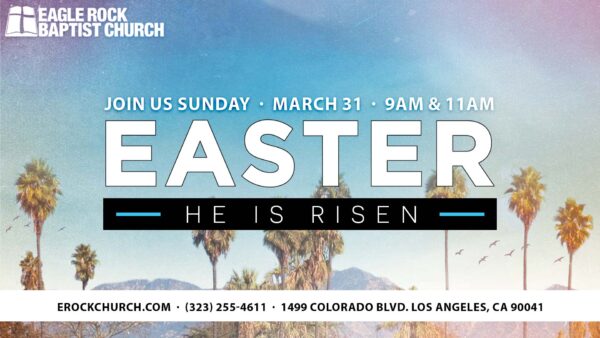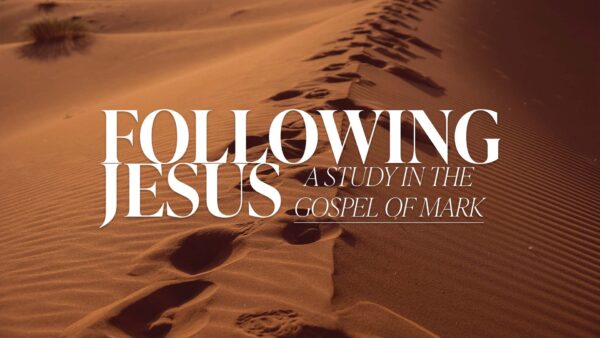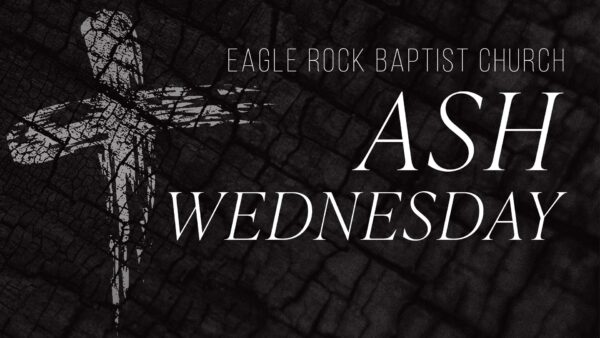Welcome to our SERMON PAGE!
Check out our most recent messages below or browse our archive of Series, Topics, and Speakers.
Loading Content...
Share a Link to this Message
The link has been copied to your clipboard; paste it anywhere you would like to share it.
CloseAndrew Krayer-White - June 20, 2021
Jonah Runs For God
It’s good to be with you church.In case we haven’t met, my name is Andrew. I serve as one of the Pastor’s here. Let me add my Happy Father’s Day wishes to you Dad’s as well. I hope that you are being celebrated and treated like a King. Maybe you get to take a nap, have a BBQ…perhaps your kids got you something from Home Depot, whatever it is this is your weekend, we really hope you enjoy it.
Over the past few weeks, we’ve been in a series looking at the book of Jonah. And one of the really challenging things in studying Jonah, is that it’s often told as a kid’s story. And I get it, there are some elements in it that lend itself to that sort of thing: being swallowed by a big fish, animals dressed in sack cloth, the very hungry caterpillar at the end. It is a funny story. But the problem is when we treat it as a kid’s story, when we believe the Veggie Tales version, it can get in the way of us recognizing the challenging word God has for us within. That said, I want to encourage you to do your best, to take what is for many of us a very familiar story, and to try and listen today with fresh ears.
We’re picking up in Jonah chapter 3. If you’ve got a bible, or bible app, open it up and join with me in verse 1. “The word of the Lord came to Jonah a second time, saying, “Get up, go to Nineveh, that great city, and proclaim to it the message that I tell you.”
If you were with us when we started this series, or you’ve taken the Jonah challenge, that verse should ring a bell. It sounds a lot like the way the book begins, doesn’t it? We got sidetracked with Jonah running away from God, the big storm and the big fish. But that’s not the main story. The main story is about God and the great city of Nineveh. Jonah’s disobedience might have delayed, but it did not deter God from his purpose. Undeterred, our persistent God resumes. And he sends Jonah.
Our message is entitled “Jonah Runs For God” and as we unpack chapter three, I’m going share a couple things that this passage teaches us about God’s sending, and us going. But…I don’t want you to assume at the end of this that I’m suggesting we ought to be like Jonah. As we’ve seen over the first two weeks, and we’ll continue to see throughout the series, Jonah is a complicated Prophet. There’s a sense where Jonah might teach us more about running for God, by looking at his life in the negative rather than the positive. So keep that in mind. Jonah is not a straightforward book on how to be an effective Missionary, as sometimes it’s been taught. What the book of Jonah does do quite well, is communicate a story that happens to match up with other places in the bible about the way God works and how we might better partner with him.
Back to text. Chapter one and chapter three parallel in a lot of ways. The repentance of the sailors in chapter one foreshadows what we’re going to see happen in Nineveh in chapter three. If you’re familiar with the text, you know verses one and two here are almost identical to what the author says at the beginning of chapter one. When biblical authors do this, when they utilize parallel but not identical passages, it’s really important that we pay attention to where the differences are. Remember, they’re not highlighting, underlining or bolding the font in their text like we do. What the authors doing was often used as one ancient form of emphasizing a point. So what are the differences?
First, the author replaced the words “son of Amittai” with “a second time.” In doing so the author is drawing our attention to and stressing the fact that Jonah was sent a second time. Why’s that important? Because who else gets sent a second time in the bible? Don’t get me wrong, there are definitely those reticent to go when called. Moses complained he couldn’t speak well. Jeremiah claimed to be too young, Gideon complained that his clan was the weakest, and he was the least in his family. But in each instance, they answered the call. The reason the word of the Lord came to Jonah a second time is because Jonah ran for the hills the first time. Isn’t it interesting that there is no condemnatory word? No chastisement or rebuke. Just go.
If God worked the way you or I do, God’s word certainly wouldn’t have come to Jonah a second time. If was up to us, Jonah would have stayed fish food and God’s word went to an obedient prophet. But thankfully for Jonah’s sake and for ours, God’s ways are not our ways.
God calls unexpected people. Rarely does he ever call the qualified, capable, logical choice. Abraham was a 75-year-old idol worshipper when God called him. David was a shepherd, the youngest of eight sons, who would eventually commit adultery and murder, Peter an uneducated fisherman, who after three years as a disciple denied that he ever knew Jesus.
If there’s a place that we should identify with Jonah, it’s here. We don’t deserve to be called, we don’t deserve to be sent or invited into God mission for the world. We might not have hopped a boat to the far reaches of the globe, but who among us hasn’t at some point turned their back on God? For those of you sitting on your hands convinced that God can’t use you because of something you’ve done: you’re exactly the kind of person that God so often unexpectedly sends. We don’t have to have it all together to run for God. What he wants from us is the acknowledgement that we don’t have it all together and a willingness to run with him none the less.
The second difference that might stand, will be important a little later. In chapter three verse two, you can see God, has dropped another phrase. God no longer tells Jonah to “cry out against” the city, for their “wickedness has come before me.” His command is now “proclaim to it the message I tell you.” “Proclaiming a message to” feels different than “crying out against them because of their wickedness” doesn’t it? It’s slight, almost imperceptible, but it’s almost as if the door has been cracked. God is allowing us to see the beginnings of daylight, the smallest signs of something about to happen in Nineveh. But we’ll have to wait a few more verses to find out.
While chapter one, verse three tells us of Jonah running away, fleeing the presence of the Lord, now we’re told of Jonah’s obedience. “So Jonah set out and went to Nineveh, according to the word of the Lord. Now Nineveh was an exceedingly large city, a three days’ walk across.
Some scholars that will point to this verse and say, you see, it’s a fairy tale. What ancient city is three days walk in diameter? Excavations of the city walls have revealed that at its largest Nineveh was still only about seven miles wide. Even at the slowest most leisurely stroll, it wouldn’t take three days to cross seven miles. So, what do we do with this? Is the Bible lying to us? No of course it’s not. Nineveh was not just used to refer to the city itself, it was also a term used to refer to the province, made up of three different cities, some 50 miles in diameter. It’s a term used, much the same way LA County can include both Malibu and Arcadia, a distance itself of roughly 50 miles. The 120,000 people mentioned in chapter 4, are now seen as a fairly accurate estimation for the cities that make up greater Nineveh.
But there’s also something important in describing it’s size in the terms of a three day walk. In Jonah 1:17, we’re told that “the Lord provided a large fish to swallow up Jonah; and Jonah was in the belly of the fish three days and three nights.”
In chapter three verse three, we’re told Jonah was to go to an “exceedingly large city, three days walk across.” Do you see the connection? Large fish, large city. Three days, three days. One commentator suggested that for this Jewish prophet to enter the large city of Nineveh, was like being swallowed up again by the monster in the depths of the sea and exiled from the land of the living. In fact, in Jeremiah 51, Nebuchadnezzar and Babylon are described as a sea monster, one that devoured Zion, which found it’s place in the beasts’ belly. Jonah wasn’t anticipating this being a hospitable place. While the three days in the fish might have inclined him toward obedience, it in no way changed his hearts toward the Ninevites or made the prospect of preaching in the city any more pleasant.
Later on the biblical prophet Nahum would describe Nineveh as a city of blood, full of plunder and never without victims.” They weren’t there yet. They were not yet at the height of their viciousness, but they were catching their stride. Developing a reputation for wickedness we saw in chapter one that made its way before God. More than any other nation of their day, their wickedness stood out as on a different level to God. Even their own king was compelled to comment on their evil ways and violence in verse eight. I’m just curious, anyone want to go on that mission trip?
It’s not odd then that Nineveh should find themselves under God’s judgment, particularly given their wickedness. It is however odd, for God to send a prophet their way to speak of this judgment much less give them a forty-day window. When you read the story of Sodom and Gomorrah in Genesis they got no window, nor warning. We see other prophets prophesying judgment against the nations, but other than perhaps Daniel, that word is almost always spoken in a Jewish context, not in the nations themselves, to the recipients of the judgement. There’s a uniqueness to this story. What makes it all the more interesting is that a more literal translation of verse three, describes Nineveh in the Hebrew, gedola le Elohim not as “exceedingly large” but rather a great city to God. A great city to God. As if there is something special about God’s relationship to Nineveh, which as we’ll see is exactly the case.
To sum up the lesson from this section, I’ll simply say – not only does God call us, unexpected people as we may be, He calls us to unexpected places and to unexpected people. Like Jonah, we’re not called to the easy places, the safe places or comfortable places. We’re called to go to whatever place God calls us to go, for whatever purpose God has ordained. More often than not because, he’s calling us to reach a people or a person special in His eyes.
I can’t help but think when Jesus was about to be taken up, and he says in Acts 1:8 “But you will receive power when the Holy Spirit comes on you; and you will be my witnesses in Jerusalem, and in all Judea and Samaria, and to the ends of the earth.” That the disciples cringed just a little when Jesus said Samaria and to the ends of the earth. Jerusalem, Judea, sure Lord we’ll minister here. But Lord, not out there, not to them. Did you ever notice that it’s really not until the persecution following Stephen’s martyrdom in Acts 8, that they finally respond, and begin to obey? It’s only then that the Holy Spirit led them to Samaria. That’s the job. This probably goes without saying, but we’re not just called to the people we like, or people like us. Some of you know this, and it drives you crazy. There is someone God keeps putting on your heart again and again, and again. And every time you say no God, anywhere but there, anyone but them. He comes back, I’ve got a message for them, they are special to me, they are great in my eyes, now go.
I want to add this, it’s not in the text, but as I said in the beginning, we’re not Jonah. The difference for most of us is that we are in Christ, and received the Holy Spirit. We can be confident that the Father will shape our hearts to be like His. Unlike Jonah, over time under the Spirit’s guidance we will come to love the Nineveh’s in our lives. The Apostle Paul’s spirit filled heart for the lost, we read about reverberating through his letters, that’s the trajectory we’re on, not Jonah’s recalcitrant heart. Do we have tough times, with difficult people, yes, absolutely we do. But if the Spirit of the Living Lord is in you, then we’re going to look more like Jesus weeping, Jerusalem, Jerusalem, as he laments their impending destruction, then like Jonah taking a front row seat to watch Nineveh burn. That might be a good litmus for Christianity right there. Who do you weep over, and who’s destruction do you secretly revel in? Whose heart do you have in you? Jesus or Jonah?
Jonah heads to Nineveh, but it doesn’t seem like he’s that happy about it. We’re told Jonah began to go into the city, going a day’s walk. And he cried out, “Forty days more, and Nineveh shall be overthrown!” That’s odd, the city or province is how many days across? Three? He makes one single day’s walk into Nineveh and that’s all he can stand he cant’s stand no more. He preaches his sermon, one sermon and then he’s done. The next time we hear from him, is in chapter four. There’s he’s set up a little booth to the east of the city, waiting to catch a glimpse, still hoping for God’s judgment. We’ll hear more about that next week. However, it wasn’t just that Jonah left so abruptly that seems to be amiss. Let’s look at the message he proclaimed. Our English text has Jonah’s sermon dialed in at eight words, in Hebrew it’s five.
It’s an odd message regardless of the length. Look at it, and think to yourself about what is missing. Does Jonah list any of the things that the Ninevites have done wrong? No. Nor does he provide any suggestion of what they might do to respond to the message. In the Luke’s gospel, John the Baptizer sees crowds coming out to him to be baptized and he says “You brood of vipers! Who warned you to flee from the coming wrath? Produce fruit in keeping with repentance.” Two verses down he warns “The ax is already at the root of the trees, and every tree that does not produce good fruit will be cut down and thrown into the fire.” Do you see what John does? Wrath is coming, true repentance is the only appropriate response.
At the conclusion of Peter’s first sermon in Acts, those listening ask “Brothers what should we do?” “Peter replied, “Repent and be baptized, every one of you, in the name of Jesus Christ for the forgiveness of your sins. And you will receive the gift of the Holy Spirit.” Do you see how Jonah might have been missing something? Come on, he doesn’t even mention God’s name once. He’s sandbagging. He’s trying to sabotage his own message. It’s like he’s putting in the minimum effort necessary to pacify God’s wrath against himself without averting it for the Ninevites.
Yet to no avail. If Jonah’s efforts were to sabotage the message, he failed miserably because his message succeeded unthinkably. As a result of his five word message “the people of Nineveh believed God; they proclaimed a fast, and everyone, great and small, put on sackcloth.
Isn’t that awesome? As terrible as the sermon was, the Ninevites still filled in the blanks. They’re eyes and ears were opened as the word cut to their hearts. As ambiguous as the message was, they heard what they needed to hear and they were broken open by it. They were confronted by the wickedness of their ways and that the one and only all-powerful God was bringing judgment upon them. And with all that they were, they repented. The city was turned.
When the news reached the king of Nineveh, he rose from his throne, removed his robe, covered himself with sackcloth, and sat in ashes. 7 Then he had a proclamation made in Nineveh: “By the decree of the king and his nobles: No human being or animal, no herd or flock, shall taste anything. They shall not feed, nor shall they drink water. Human beings and animals shall be covered with sackcloth, and they shall cry mightily to God. All shall turn from their evil ways and from the violence that is in their hands. 9 Who knows? God may relent and change his mind; he may turn from his fierce anger, so that we do not perish.”
Verse 10 is almost a postscript. By the time we get here in the story we already know what’s coming. When God saw what they did, how they turned from their evil ways, God changed his mind about the calamity that he had said he would bring upon them; and he did not do it. Of course he didn’t. He had arranged all of this, for the purpose of forgiving them.
Can you imagine what some of the other prophets must have thought when they heard this story. In Jeremiah chapter thirty-six, the Lord told Jeremiah, “Take a scroll and write on it all the words I have spoken to you concerning Israel, Judah and all the other nations from the time I began speaking to you in the reign of Josiah till now. Perhaps when the people of Judah hear about every disaster I plan to inflict on them, they will each turn from their wicked ways; then I will forgive their wickedness and their sin.” Jeremiah was obedient. The first time. He did what God said and when the scroll containing these words was brought before the king of Judah to be read, we’re told “Whenever Jehudi had read three or four columns of the scroll, the king cut them off with a scribe’s knife and threw them into the firepot, until the entire scroll was burned in the fire. The king and all his attendants who heard all these words showed no fear, nor did they tear their clothes.
What do you do with that? Was Jonah a more faithful prophet than Jeremiah? No way. Yet Jonah stubbornly mumbles five words and a city of vicious godless foreigners turns, the King of which, strips off his clothes and sits down in the dust. While Jeremiah’s words are tossed in the fire by the anointed king of Judah.
Here it is, God calls unexpected people, to unexpected places, yielding unexpected results. We have no idea what God’s going to do other than what he says in His word that he will do. We can go, we can speak God’s word, they can fall on deaf ears. Or tomorrow, the city of Los Angeles could be overturned. I believe our entire city could be saved, in the same way Nineveh was. Even just through one of us. I think we should pray to that end, share our faith to that end, dream dreams to that end. But that end is not dependent on you and I. As you and I are called to wherever and to whomever it may be that God calls us, we’re not called to produce the results. The Apostle Paul says. So neither the one who plants nor the one who waters is anything, but only God who gives the growth. It’s God, not us.
Running for God is about being faithful to the call and entrusting our fruitfulness to God. And in case you want some more humble pie, as we see in Jonah’s story our faithfulness isn’t even a requirement for God’s fruitfulness. Often when people hear that their response is then “If what I do doesn’t matter, why should I even run for God?” Again back to the story, whether God needed Jonah or not, God wanted Jonah. He was willing to chase Jonah to the end of the earth, and the bottom of the sea, to bring Jonah on board with the plan. We should Run for God because he’s called us to. But I think this is the more compelling reason. Because we get to.
Unexpected as we may be, God has invited us to play an incredible part in the story of another. As we’ll see next week, Jonah was looking for the wrong seat, he wanted a front row seat, to judgement, when we run with God you and I get a front-row seat to redemption and new creation. We get to be a part of someone being eternally forgiven and embraced by their heavenly father for the first time in their life, to see a name written in the book of life. Church we get to run with God, and it’s the best job there is. Let’s give him thanks for that.
More Messages from Andrew Krayer-White
From Series: "See Jonah Run"
The story of Jonah is really all of our stories. Each of us can look back at some point in our lives where we have attempted to run from God. And what many of us runners have discovered is while we can run from God, we can’t outrun God! In this series, we will rediscover the amazing grace of God for each of our lives.
More Messages from Andrew Krayer-White...

March 29, 2024
"Torches, Rams, & The Cross" (Good Friday 2024)
Andrew Krayer-White

March 3, 2024
"What The Bible Says About Marriage and Divorce"
Andrew Krayer-White
Powered by Series Engine
Download our app to listen to our sermons, take notes, watch our Daily Devotional videos, and so much more!

